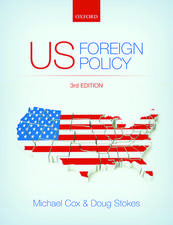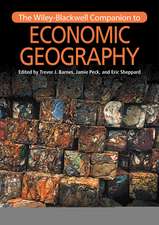Germany, Russia, and the Rise of Geo-Economics
Autor Stephen F. Szaboen Limba Engleză Paperback – 17 dec 2014
| Toate formatele și edițiile | Preț | Express |
|---|---|---|
| Paperback (1) | 178.65 lei 6-8 săpt. | |
| Bloomsbury Publishing – 17 dec 2014 | 178.65 lei 6-8 săpt. | |
| Hardback (1) | 714.19 lei 6-8 săpt. | |
| Bloomsbury Publishing – 17 dec 2014 | 714.19 lei 6-8 săpt. |
Preț: 178.65 lei
Preț vechi: 207.51 lei
-14% Nou
Puncte Express: 268
Preț estimativ în valută:
34.19€ • 35.78$ • 28.45£
34.19€ • 35.78$ • 28.45£
Carte tipărită la comandă
Livrare economică 31 martie-14 aprilie
Preluare comenzi: 021 569.72.76
Specificații
ISBN-13: 9781472596314
ISBN-10: 1472596315
Pagini: 200
Ilustrații: 2 halftones
Dimensiuni: 156 x 234 x 18 mm
Greutate: 0.34 kg
Editura: Bloomsbury Publishing
Colecția Bloomsbury Academic
Locul publicării:London, United Kingdom
ISBN-10: 1472596315
Pagini: 200
Ilustrații: 2 halftones
Dimensiuni: 156 x 234 x 18 mm
Greutate: 0.34 kg
Editura: Bloomsbury Publishing
Colecția Bloomsbury Academic
Locul publicării:London, United Kingdom
Caracteristici
Based on extensive interviews with policy-makers and opinion shapers in Germany and beyond and on a wide variety of public opinion surveys, media reports and archival sources
Notă biografică
Stephen F. Szabo is Executive Director of the Transatlantic Academy, an independent research institute based at the German Marshall Fund of the United States in Washington DC, USA. He is the author of numerous books and articles focusing on Transatlantic relations and German foreign policy including Parting Ways: The Crisis in German-American Relations (2004).
Cuprins
AcknowledgementsChapter 1: The Foreign Policy of Germany Inc.Drang Nach OstenTrading State vs Civilian PowerGermany as a Reemerging PowerGermany as a Geo-Economic PowerAdapting Ostpolitik to GlobalizationChapter2 : Germans and RussiansGerman Images of RussiaHistorical ContextContemporary German Public Opinion on RussiaThe Russian Image in the German MediaGermans and Russian DemocracyChapter 3: Who makes Russia policy?The Political Parties and the BundestagInside the German GovernmentGerman BusinessThe Role of German Think Tanks, Political Foundations and AcademiaChapter 4: Doing Business with Russia Inc.Dealing with the Devil: German Business in RussiaThe Costs of CorruptionThe Case of Siemens AGGazprom in GermanyThe Gazprom German TeamImplications of the Energy RevolutionChapter 5: Security and Geo-EconomicsThe Geopolitics of Geo-economicsMilitary Force: Nein DankeDefending Germany Inc.The Resource and Markets ImperativeThe Merkel Doctrine and Arms ExportsDrones and German SecurityCyber Security and Industrial EspionageRussia and German SecurityChapter 6: Germany's Russlandpolitik: Implications for The United States, Poland and EuropeRussia as the Centerpiece in the German-American RelationshipThe Legacy of 1989 in Germany and the United StatesGerman and American Publics and RussiaAssymetrical Economic StakesThe German-American Strategic DebateStrategic Options for the United StatesPoland's Resets with Germany and RussiaThe Role of the European UnionIn the Wake of the Ukraine CrisisChapter 7: Conclusions: Germany the Shaping PowerFuture Scenarios for German-Russian RelationsGermany and the Geo-Economic WorldGermany as a Shaping PowerSelect BibliographyIndex
Recenzii
An original and indispensable corrective to the overly political-military focus of most writing on Europe, Russia, and global politics.
Quite simply the best book to appear on any aspect of contemporary German foreign policy in recent years.
Stephen Szabo brings his deep historical and contemporary knowledge to bear in deftly analyzing the German-Russian relationship. This engagingly written book explains the role of economic and commercial factors in driving Germany's Russia policy and should serve as required reading for scholars and students who wish to better understand the present and future course of a relationship that has tremendous implications for the United States, Europe and Eurasia.
Stephen Szabo's volume on German relations with Russia in the larger geo-economic context is an important contribution to a better understanding of the long-range complexity of that issue. He correctly puts emphasis on the historically significant economic links between the two states, but he also conveys a keen understanding of the geopolitical dangers inherent in a one-dimensional approach. Szabo's book is thus a genuinely significant contribution to geostrategic literature.
Quite simply the best book to appear on any aspect of contemporary German foreign policy in recent years.
Stephen Szabo brings his deep historical and contemporary knowledge to bear in deftly analyzing the German-Russian relationship. This engagingly written book explains the role of economic and commercial factors in driving Germany's Russia policy and should serve as required reading for scholars and students who wish to better understand the present and future course of a relationship that has tremendous implications for the United States, Europe and Eurasia.
Stephen Szabo's volume on German relations with Russia in the larger geo-economic context is an important contribution to a better understanding of the long-range complexity of that issue. He correctly puts emphasis on the historically significant economic links between the two states, but he also conveys a keen understanding of the geopolitical dangers inherent in a one-dimensional approach. Szabo's book is thus a genuinely significant contribution to geostrategic literature.













